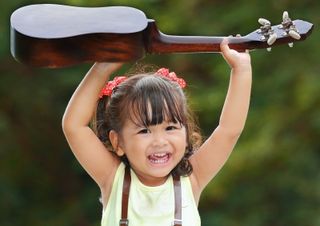Education
Don't Stop Music Learning
Thoughts on music learning inspired by the documentary "Don't Stop the Music"
Posted February 6, 2016

I had the pleasure last week of serving on a panel following a screening of the BBC documentary Don’t Stop the Music. The film chronicled the journey of professional pianist James Rhodes as he worked to collect enough instruments for one school to begin an orchestra program. The project has grown—according to the website, James Rhodes has helped collect over 7,000 instruments to date—and it’s spread, having inspired a similar project in the US.
I’m a big believer in the key role music and the arts have for a child. I’ve blogged before about the importance of music learning as part of educational programming, have shared easy ways to engage young kids in music, and have put it into practice myself (both of my children began piano lessons before they turned 5).
However, when watching the film last week, I was reminded of which children benefit the most from engaging in music—it's the ones who face the most challenges. The children who need music the most are the ones who struggle the most.
There were three examples in the film. One boy found reading difficult, another had low self-esteem, and the third was a girl who easily gave up when a task got too hard. Though not explicitly stated in the film, in each case participating in the orchestra taught these children hard work, perseverance, and provided them with opportunities to feel proud of their accomplishments. These changes were reflected in test scores and observed classroom behaviors.
These changes also speak to the intrinsic value of music learning. Yes, research supports a relationship between music training and non-musical academic skills (extrinsic benefits), but what is arguably more important are the ways music training impacts the person, allowing one the experience to connect to others, and to be part of a group in which dedication and hard work are rewarded.
It’s these skills and experiences that are so vital for our youth, particularly those in circumstances where these types of opportunities are not readily available due to environmental or developmental challenges (e.g. low socioeconomic status, developmental disabilities, trauma, medical needs, etc.).
I think, too, that this is part of why I love being a music therapist. Yes, my primary purpose is to target and practice non-musical skills and behaviors. But all of that happens through music, and by engaging in music with my clients, perhaps I am providing them with important intrinsic benefits as well.
Follow me on Twitter @KimberlySMoore for daily updates on the latest research and articles related to music, music therapy, and music and the brain. I invite you also to check out my website, www.MusicTherapyMaven.com, for additional information, resources, and strategies.


